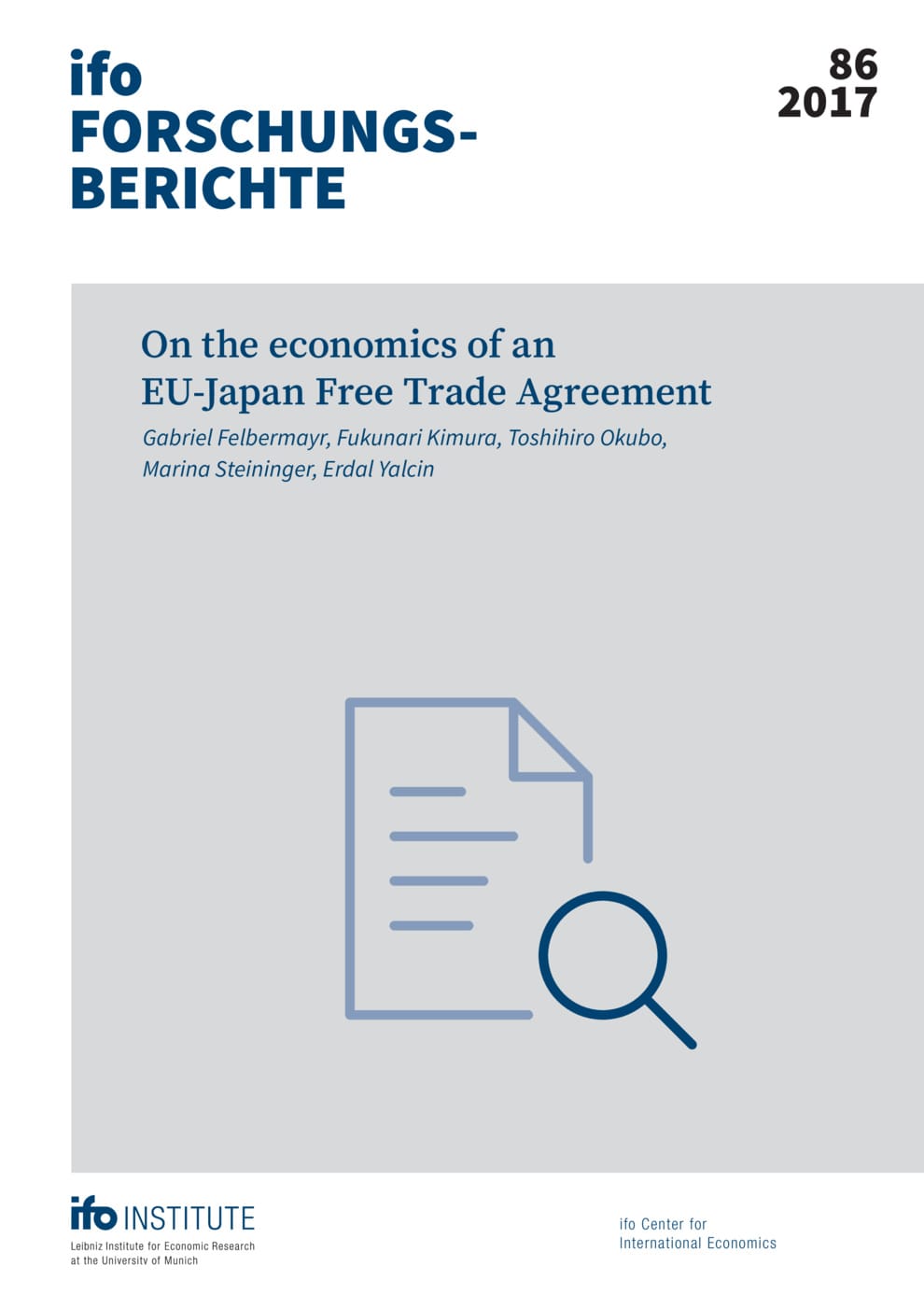On the economics of an EU-Japan Free Trade Agreement
ifo Institute, Munich, 2017
ifo Forschungsberichte / 86

The negotiations between Japan and the EU over a free trade agreement are taking place during times in which global economic integration is increasingly questioned. With TTIP on hold and TTP no longer pursued by the US, a successful trade deal between two leading economic powers such as Japan and the EU would be a strong political message: economic integration between countries is still achievable and is favorable because of welfare gains for all participating parties. This report revisits the case for an EU-Japan free trade agreement, and provides estimates of its potential economic impact. It employs advanced quantitative methods to shed light on the economic effects that can be expected from a bilateral trade agreement between the EU and Japan. A key innovation in the proposed approach is to use the recently implemented EU-Korea free trade agreement as a benchmark and to employ the most recent available data in the simulation model. While a less ambitious trade liberalization, which is based only on tariff eliminations, is predicted to yield very low welfare benefits, economic gains turn out to be substantial if the negotiating parties pursue a comprehensive free trade agreement that would reduce non-tariff barriers across various sectors. A conservative estimate, which is modelled on the experience of the EU-Korea trade agreement, puts the welfare effects for Japan at about EUR 9 bn, which is equivalent to 0.23% of Japanese GDP in 2014. At the same time, the EU Member States can expect total income gains worth about EUR 11 bn per year. For Europe, simulations predict that the agreement would have positive value added effects in the pharmaceutical industry, in the food, beverages and tobacco, and in the motor vehicle industries. At the same time, some losses can be expected in the machinery industry. Amongst the services sectors, wholesale trade would benefit the most. In the area of services, minor losses are likely to appear in computer programming or the enter